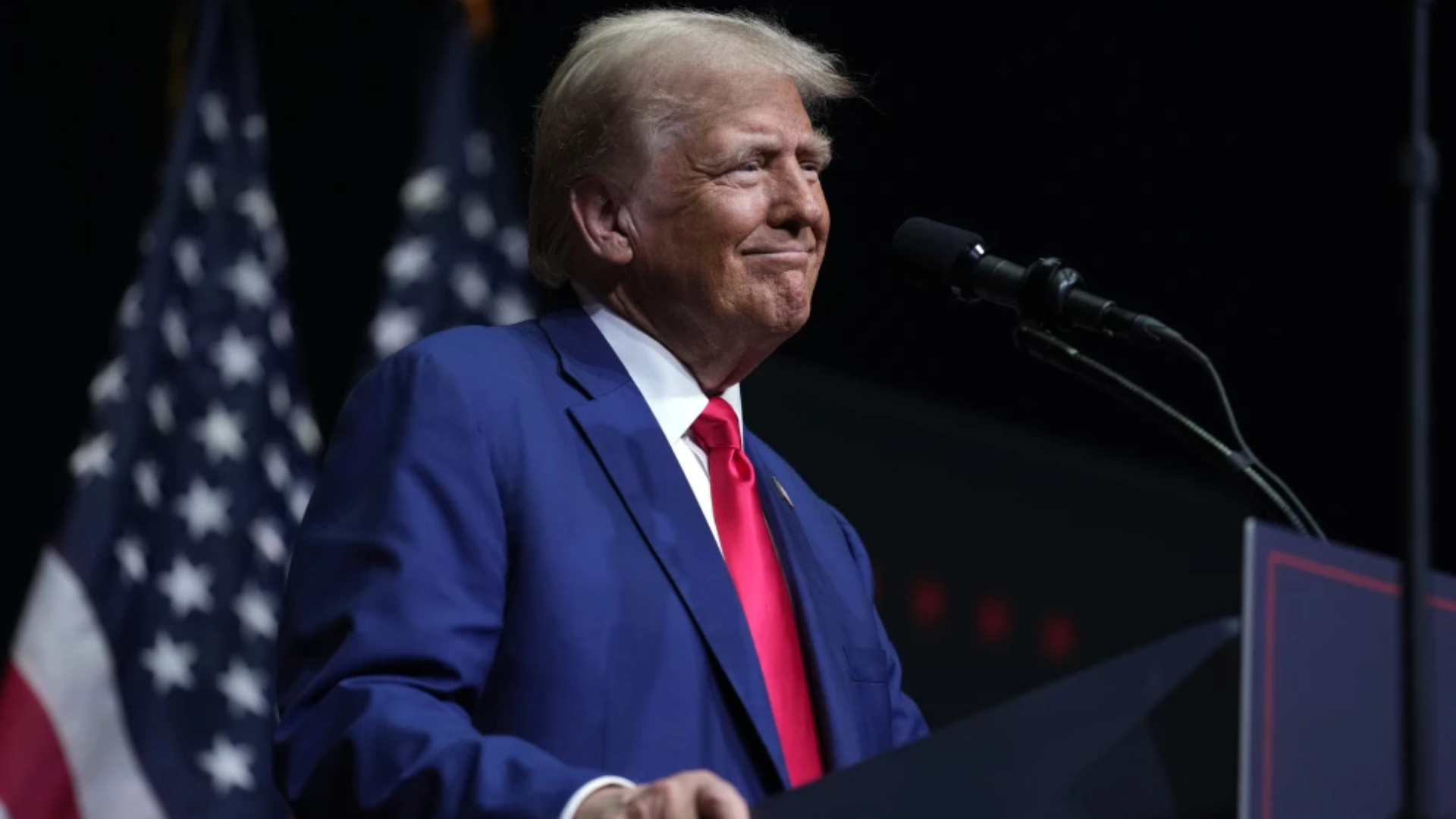WASHINGTON — (CNN) President Barack Obama on Monday aired his most candid assessment to date about Republican frontrunner Donald Trump, charging in a radio interview the billionaire businessman was capitalizing on economic fears of white men to fuel his presidential campaign.
Offering his first explicit reaction to Trump since the candidate proposed a ban on all Muslims entering the country, Obama said such ideas are a blatant appeal to Americans’ fears. Describing in general the reflexive opposition to his agenda from Republicans, Obama argued that some of that enmity was rooted in his position as the first African-American president.
“Blue-collar men have had a lot of trouble in this new economy, where they are no longer getting the same bargain that they got when they were going to a factory and able to support their families on a single paycheck,” he told National Public Radio in an interview taped before he departed for his winter vacation in Hawaii.
“There is going to be potential anger, frustration, fear. Some of it justified, but just misdirected. I think somebody like Mr. Trump is taking advantage of that,” Obama said. “That’s what he’s exploiting during the course of his campaign.”
Speaking more broadly — and not explicitly about Trump — Obama identified elements of Republican antagonism that he said could be fueled by ingrained resistance to an African-American commander in chief, citing “specific strains in the Republican Party that suggest that somehow I’m different, I’m Muslim, I’m disloyal to the country.”
“In some ways, I may represent change that worries them,” he said.
“I think if you are talking about the specific virulence of some of the opposition directed towards me, then, you know, that may be explained by the particulars of who I am,” he added later.
The President acknowledged earlier in the sit-down interview that his administration may have fumbled its anti-ISIS communications strategy, but he insisted the plan itself was working and suggested saturated media coverage of the group could be fueling terror fears in the United States.
In the past few weeks, the White House has sought to step up its messaging efforts on counterterrorism, scheduling a prime-time television address and visits to the Pentagon and National Counterterrorism Center in an attempt to better explain progress made against the Islamic State group.
But Obama conceded those efforts, prompted by an ISIS-inspired attack that killed 14 people in San Bernardino, California, came after inadequate efforts to relay the work of a U.S.-led coalition in combating ISIS.
“We haven’t on a regular basis, I think, described all the work that we’ve been doing for more than a year now to defeat ISIL,” Obama told NPR in an interview taped before he departed for his holiday vacation in Hawaii. He called the communications blunder a “legitimate criticism of what I’ve been doing and our administration has been doing.”
But he also pinned Americans’ renewed unease about terror attacks on U.S. soil to blanket media coverage of ISIS attacks. The November ISIS terrorist massacre in Paris, which left 130 people dead, led to “a saturation of news about the horrible attack there,” Obama said in the interview.
“If you’ve been watching television for the last month, all you have been seeing, all you have been hearing about is these guys with masks or black flags who are potentially coming to get you,” he said in the NPR interview. “So I understand why people are concerned about it.”
“Look, the media is pursuing ratings,” he added later. “This is a legitimate news story. I think that, you know, it’s up to the media to make a determination about how they want to cover things.”
Public relations push from Oval Office
Obama has come under fire from Republicans for his ISIS strategy, which they have labeled weak and ineffective. But even some Democrats, namely those lawmakers up for re-election next year, have privately worried that Obama has appeared flat-footed in responding to the terror rampages in France and California.
A public relations push to better explain his plan, which began with a rare Oval Office address at the beginning of December, came as Americans increasingly said in polls they doubted his ability to protect them from terrorist attacks.
But he’s resisted calls to fundamentally alter his strategy against ISIS, which has relied on airstrikes and small numbers of special operations forces to take out key ISIS leaders. He’s castigated GOP opponents of his plan for not laying out specifics of their own proposals and deemed what they have offered as untenable.
“If the suggestion is that we kill tens or hundreds of thousands of innocent Syrians and Iraqis, that is not who we are and that would be a strategy that would have enormous backlash against the United States. It would be terrible for our national security,” he said in the interview.
He offered slight praise for one GOP candidate, Sen. Lindsey Graham of South Carolina, for offering up specifics of a plan, which would include sending at least 10,000 U.S. ground troops to fight ISIS. The interview was taped and aired before Graham announced Monday he was dropping out of the race.
“Lindsey Graham one of the few who has been at least honest about suggesting: here is something I would do that the President is not doing. He doesn’t just talk about being louder or sounding tougher in the process,” he said.
The-CNN-Wire ™ & © 2015 Cable News Network, Inc., a Time Warner Company. All rights reserved.
(Photo: CNN)






















